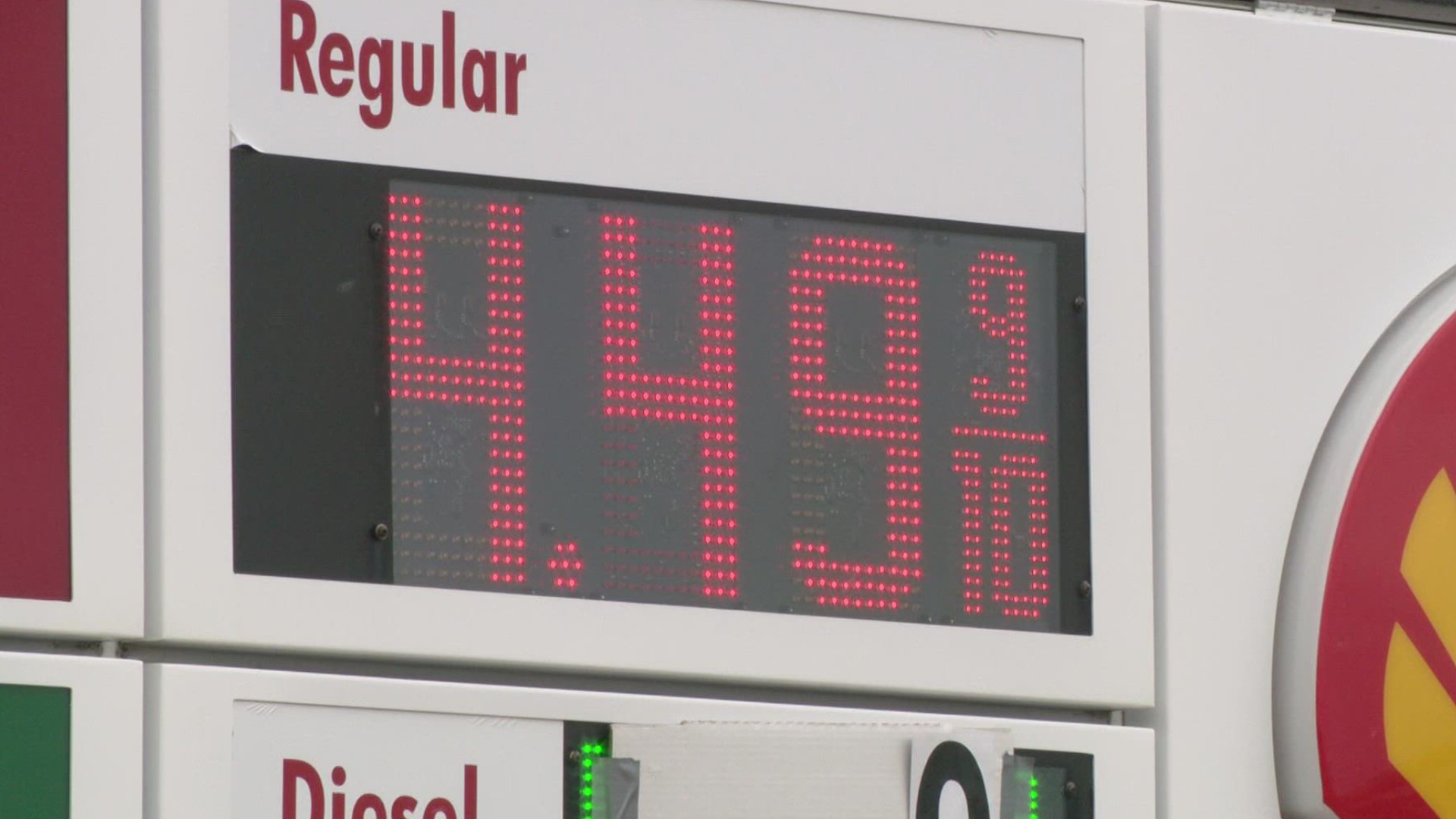INDIANAPOLIS — AAA reports the average price of gas in Indiana is up 43 cents compared to last week.
Driving around Indianapolis, $4.25 is the price you'll see at most gas stations.
"Shock," said motorist Allissa Impink.
"Out east, it's a little bit higher," said driver India Bryant. "The highest I've seen out there is about $4.30 already."
That's in line with the state's average. 13 Investigates has seen it in the metro area, as well as rural parts of central Indiana.
The cause of these prices is in part due to the conflict in Ukraine. Most people understand that, but some are warning Hoosiers to be on alert, just in case, including Indiana Democrats.
"We think the attorney general should be looking at price gouging," said Sen. Tim Lanane, D-Anderson.
No confirmed reports of it so far, but it got us thinking: What exactly is price gouging?
Indiana law describes it as "charging a consumer an unconscionable amount for the sale of fuel."
To better understand the law, we turned to Suneal Bedi, an IU Kelley School of Business assistant professor of business law and ethics.
"The statute doesn't really specify what's 'unconscionable'," Bedi said. "It's really up to sort of the state to determine what this is, and that's what makes it somewhat tricky."
A little confusing, but he says it also gives the state flexibility, which is good for businesses.
Indiana law says price gouging only happens during an event.
"In Indiana, the the price gouging statute is tied to the declaration of an emergency, and so we would sort of be 'Is this an emergency now?'" said Bedi.
Currently, Indiana is not in a state of an emergency, so right now, even if a retailer decided to jack up prices much higher than others, it would not be considered price gouging.
"There's nothing wrong with that," Bedi said. "And the argument for why there's nothing wrong with that is that there should be, outside of your emergency, more than enough supply of the good that you can go somewhere else and get it for a cheaper price."
If you still think the prices are off, you can always file a complaint with the Attorney General's office. Then the state can investigate whether or not what you're seeing is a violation of Indiana's Deceptive Consumer Sales Act.
The complaint form asks for your name, the company that you're complaining about, the price you saw as well as the the date and time you saw it.
Bedi said the best way to protect your wallet is to shop around.
What other people are reading:

